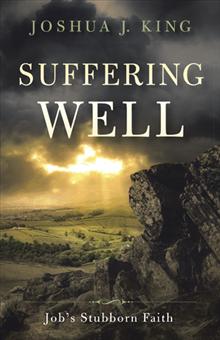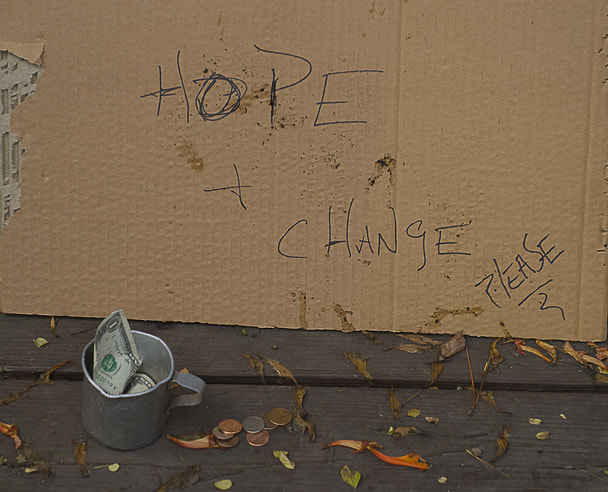As Chris points out, forgiving someone who has caused you great harm can be extremely difficult. But in his epistle to Philemon, Paul made a passionate case for doing just that. And the Lord Jesus Christ showed us by example precisely how. So if you need to be set free from an unforgiving heart – or if someone you love is suffering from the bitterness that is its inevitable result – please take some time to reflect on the situation these men faced nearly 2000 years ago:
|
If you have ever had trouble forgiving someone who has hurt you, I hope you will listen to the message below, delivered by Chris Carrillo to the folks at Care-age of Brookfield on August 27th. In just a few minutes, he will take you through Paul’s letter to Philemon on behalf of the runaway slave Onesimus – in the process, revealing the wonderful Gospel picture that these three men painted for us all. As Chris points out, forgiving someone who has caused you great harm can be extremely difficult. But in his epistle to Philemon, Paul made a passionate case for doing just that. And the Lord Jesus Christ showed us by example precisely how. So if you need to be set free from an unforgiving heart – or if someone you love is suffering from the bitterness that is its inevitable result – please take some time to reflect on the situation these men faced nearly 2000 years ago: (If you are reading this via email, please click on the title above to be taken to the audio.)
1 Comment
Approaching her 98th birthday, a darling woman I love to pieces has been spending much of her time lately in a state of anxiety. Perhaps most stressful for her, she who invested her life in doing things for others is now stuck in a comfortable-but-cumbersome gerichair recliner, unable to expend her restless energy on any useful task. “What do I do now?” has become her constant question – one that is not satisfied with “just rest.” She does not want to “just rest.” She wants to get busy. Fortunately, the Life Enrichment specialists at Care-age of Brookfield are always on the lookout for ways to enhance the lives of individual residents – which means, for those who simply cannot relax, creating jobs. Recently, for instance, the incredibly creative Kelly gave our beloved friend the job of ripping colored paper into small pieces. It took her hours to complete the task. And she was happily engaged every moment, at least in part because this was not simply busy work; the paper is being used by multiple residents to create collages for gifting or displaying in their rooms. This outstanding video reminded me recently how wonderful such special, personalized attention can be for the very elderly: If you’re searching for a great nursing home, keep an eye out for Activities staffers who provide this level of personalized attention. It can help ensure a truly peaceful retirement for your loved one, especially if he or she is determined to remain useful until the end of time. Could vitamin D deficiency increase your risk of developing Alzheimer's disease? It's possible, according to a landmark 2014 study published in the journal Neurology and discussed far and wide since then, including by luminaries at such leading-edge institutions as Mayo Clinic. In fact, the study's authors found that the risk of both Alzheimer's and other forms of dementia increased "markedly" in patients with low levels of D in their blood.
That doesn't necessarily mean we should all run out and by vitamin D supplements, or spend more time in the sun, or consume more salmon, tuna, fortified whole milk, pork, eggs, beef liver, ricotta cheese, or other foods identified as great sources of D. (Why does butter-pecan ice cream never appear on such lists?) The jury is still apparently out on this question. But could it hurt to buy a bottle of supplements? Well, maybe. We all know about the dangers of getting too much sun, or eating too much of just about anything. The side effects of too much D include weakness, fatigue, dry mouth, nausea, and worse. In fact, if you're trying to correct a D deficiency, you should do it only under the supervision of a healthcare professional. But the danger apparently occurs only when you're taking over 4,000 units of D a day, per WebMD; my bottle's gelcaps are only 400 units each. I suppose that means one a day isn't going to do much if you have a problem, and if you don't have a problem, what's the point in taking it? Obviously the right way to do this is to get tested for D deficiency, and if you've got it, follow your doctor's instructions. Probably worth it, if it really reduces the risk of these sad diseases. In the meantime, it's good to know that Vitamin D can also be helpful for everything from bone health to blood pressure, and may help prevent diseases from autoimmune disorders to cancer. Hey, maybe D is the ticket to living forever!? But the jury is still out on that score, too; until you hear otherwise, there's only one sure way to eternal life, and it doesn't come in a bottle. Ever since I first saw Vivien Leigh as Scarlett O’Hara pouring her heart out (kind of) to her father in the opening scene of Gone with the Wind, I’ve been a big fan of old movies. Not that I’ve seen hundreds of them, but I’ve seen enough to notice something very curious about what they have taught Americans.
Exhausted from a heavy work load, some time ago I watched, for the first time, A Streetcar Named Desire. Vivien herself stars in this 1951 movie (“film,” I guess sophisticated people call a critically acclaimed movie, which mostly seems to mean any that attack the moral fiber of this nation). If you haven’t seen it yourself, it’s about aging southern belle Vivien visiting her sister, who is married to the absolutely disgusting Marlon Brando. Vivien presents herself as a very refined and proper belle, but of course it turns out she really isn’t –she’s been promiscuous. When her past comes to light, she is dumped by a nice man who’s been courting her, apparently something ugly happens off-screen with Brando, and she is last seen being hauled off to the local insane asylum. I have to admit it. I responded for a moment exactly the way playwright Tennessee Williams wanted me to respond, by thinking, “What happened to a woman like that in those days, branded with a scarlet letter and without the resources or skills she needs to take care of herself?” Good grief! Why in the world didn’t I view this whole personal-disaster display through God’s eyes? Why didn’t I think, “That’s what happens when we disobey God’s clear teaching on sex outside of marriage”? And “That’s what happens to people who have swept their consciences so clean of His commands that they’ve provided demons with a nice empty place to nest”? And “That’s what happens when we refuse to repent and leave ourselves fit only to profit the psychiatric industry”? And “That’s what happens to those who turn their backs on, and their noses up at, the love of genuine Christians who would take them in and help them embrace the Lord’s forgiveness and the second chance that He offers everyone”? Hollywood has been railing against that kind of thinking from the start, and we’d do well to keep that in mind as we witness to unbelievers whose thinking has been shaped not by the Bible but by the entertainment industry. One good thing should come out of this, at any rate: what a great icebreaker this will be for discussing biblical truth with the most alert of my friends at the nursing home. If you've wrestled with the question of suffering and its role in the believer's life, here's a book you won't want to miss: Suffering Well: Job’s Stubborn Faith is a uniquely uplifting exploration of the fascinating, important, and for some of us, frightening, Old Testament book of Job.
Seasoning his highly readable prose with contemporary analogies and personal stories, author Joshua King guides us through Job chapter by chapter, verse by verse. Along the way, he calls our attention to points we ordinary Bible students might too easily overlook – including, to cite just one example, the fact that Mrs. Job suffered trials as crushing as her husband’s; that in spite of her notorious Chapter 2 rant, she stayed with Job through tragedies that would have sent other women packing; and that in the end, the Lord restores them both with abundant blessings. King also gives us compelling insights into Job’s four friends and the flaws in their theologies, in the process exposing many of our own errors and fears. But most enlightening is the author’s analysis of our hero Job, his stubborn faith in his “intimate friend,” and the true longings of his heart. Bottom line: King has given us a commentary that invites us to learn critical lessons about our relationship with the Lord. He shows us how crucial it is to elevate our focus above the “why” questions of life, and to simply trust the One whose infinite love and mercy will see us through our deepest sorrows. Suffering Well has given me a better understanding of Job, his wife, his friends, and God Himself – and a new view of human suffering. Highly recommended! You'll find Suffering Well online at Amazon. If you’re yearning for rock-solid hope and truly lasting change in your life, Chris Carrillo has some critical advice for you: “It’s not the cross of the fingers but the cross of Calvary that you should be trusting.” Chris delivered this advice on Sunday in a message entitled “Real Hope and Change.” The occasion was the July Christian Music Hour, attended by dozens of Care-age of Brookfield’s residents, family members and friends. Keying his talk on John the Baptist’s doubt and Jesus’ reassurance in Matthew 11, Chris pointed out that this world offers little more than wishful thinking and empty promises – including the vows of “smooth-talking politicians who promise the earth but deliver only the dirt.” God, on the other hand, offers promises we can trust today and for all eternity – which is precisely what Chris talked about in this gem of a message. He concluded with the promise that apostle Paul passed along to us in 1 Thessalonians 4:16-18: “For the Lord himself will come down from heaven, with a loud command, with the voice of the archangel and with the trumpet call of God, and the dead in Christ will rise first. After that, we who are still alive and are left will be caught up together with them in the clouds to meet the Lord in the air. And so we will be with the Lord forever. Therefore encourage one another with these words.” This promise, Chris said, is one we can take to the bank – just as we can all the other promises that God has made to His children. And we don’t have to go searching for them; He presents them all in the Bible. I hope you enjoy “Real Hope and Change” as thoroughly as we did! (If you’re reading this via email, please click on the title above to be taken to the original post, so you can hear the entire message.)
|
Kitty
|






 RSS Feed
RSS Feed